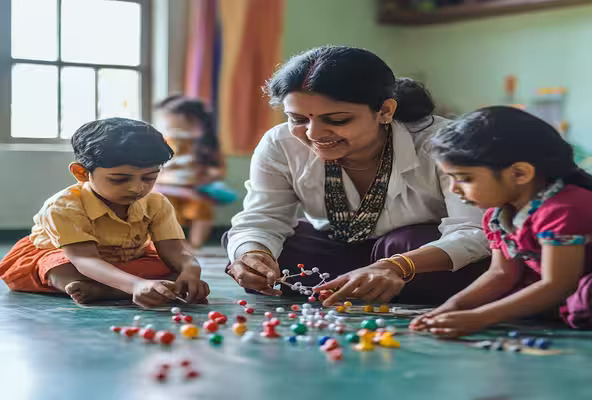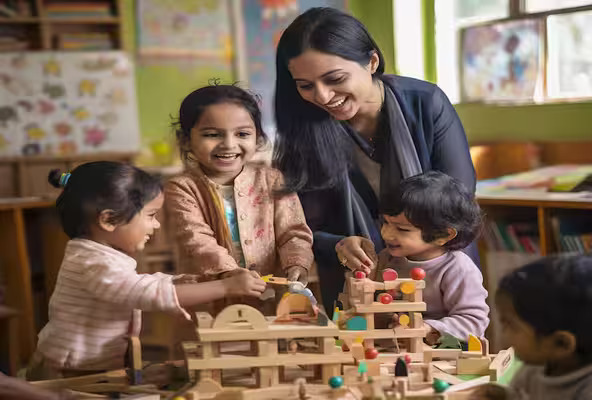
How Good Day Care Boosts Early Childhood Growth
High-quality daycare plays a pivotal role in a child's early development. Beyond providing a safe environment, it offers structured learning experiences that foster cognitive, social, and emotional growth. Engaging with trained caregivers and peers, children develop essential skills that lay the foundation for lifelong learning and well-being.
Daycare centers are rich in stimuli that promote cognitive advancement. Through age-appropriate activities like storytelling, puzzles, and interactive play, children enhance their problem-solving abilities and critical thinking skills. These experiences not only prepare them for academic success but also instill a love for learning from an early age.
"The goal of early childhood education should be to activate the child's own natural desire to learn."
Interacting with peers in a daycare setting teaches children valuable social skills such as sharing, cooperation, and empathy. Regular engagement in group activities helps them understand emotions, build friendships, and develop a sense of belonging. These early social experiences are crucial for emotional intelligence and future interpersonal relationships.


A consistent daily schedule in daycare introduces children to routines, helping them understand the concept of time and responsibility. Participating in structured activities fosters discipline and self-regulation. Additionally, opportunities to make choices and complete tasks independently boost their confidence and autonomy.

One of the most influential elements in a child’s early development is the bond formed with caregivers. In a good daycare, trained professionals provide consistent, responsive, and warm interactions that mirror the comfort of a family setting. These secure relationships promote emotional safety, help children manage stress, and build the trust necessary for exploring new experiences. When children feel loved and supported, their capacity for learning and social connection grows significantly.
